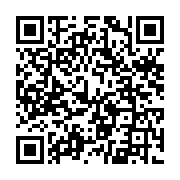By Lizzie Z.
When I started medical school, I looked around at my classmates and thought that the admission team made a mistake. I felt nowhere near as qualified as my peers, and, at times, I felt like I was faking it as a medical student and a science trainee. Part of my own imposter syndrome was rooted in ableism and my (incorrect) belief that my chronic illness made me worse at my job. Over time, I started talking with my peers and they voiced identical thoughts:
“I don’t know why I was admitted.”
“I’m not good enough to be here.”
“My classmates are so much better than me – they have to study way less to get better grades.”
“Some people are just able to do everything.”
“She just looks the part of a doctor, and I look like I’m playing pretend.”
Over time, I started to develop methods to combat my own imposter syndrome, and I’ve run a workshop imposter syndrome for prospective medical students over the past three years. These are strategies that my panelists and I have found to make a difference for us:
1. Avoid comparing your failures to other’s success. In general, people talk and post about success over failures, while we personally ruminate on our own shortcomings. This warps our view – causing us to compare our faults to their successes. Instead, take a step back, and recognize the awesome contributions you have made. Maybe you don’t have a bunch of papers, but you have been a community activist in your time. Or maybe you struggled on an exam your friend aced, but you were taking extra time to care for a family member.
2. Reach out about perceived shortcomings. Vocalizing your imposter syndrome to a trusted friend group, therapist, or advisor can provide tangible examples of your belongingness. They can help you realize that you are acing anatomy, are a vital part of the free clinics, or are doing amazing research.
3. List ways you do belong. Make a list of your successes as you think of them and return to that list when imposter thoughts overwhelm. Take what you support structure has said as well. Try and make the list as boastful and grandiose as possible!
4. Disability and chronic illness belong at the table. We belong in a community that uniquely understands and connects so many of our patients, and having this perspective as medical students will help us treat our patients with excellence and compassion. I previously believed that my chronic illness prevented me from being productive and doing the same amount of research as other medical students. In reality, I can uniquely relate and work with my patients when they discuss deleterious effects of medications, extreme fatigue, and difficulties navigating the healthcare system.
5. Contribute to an imposter-free environment by voicing failures. By voicing all parts of your journey through medical school, you can help other students with imposter syndrome recognize that failure is ok and does not mean lack of belonging.
At the end of the day, I promise the admissions team did not mess up. You belong; you are valued; and you will make an outstanding physician.
Lizzie Z. is a medical student at Stanford University.
